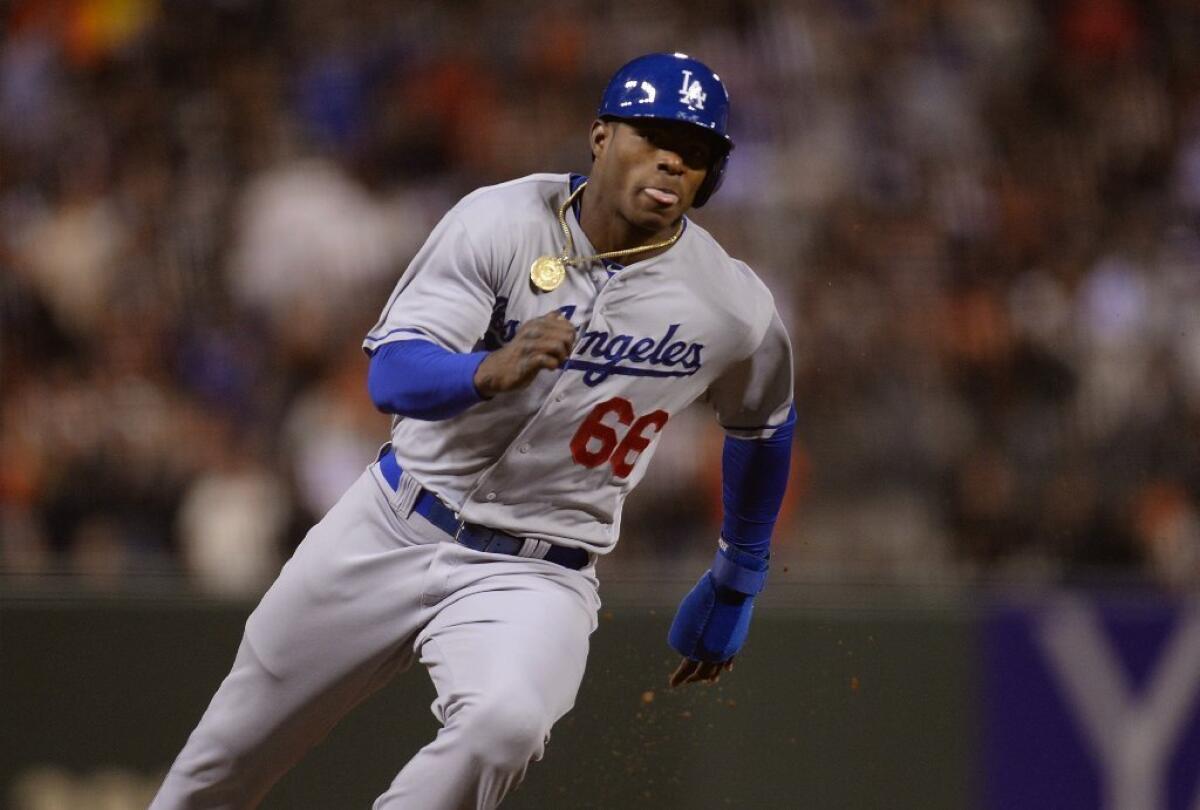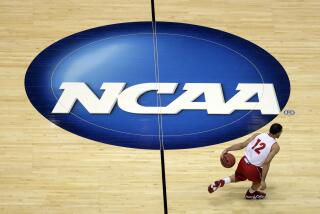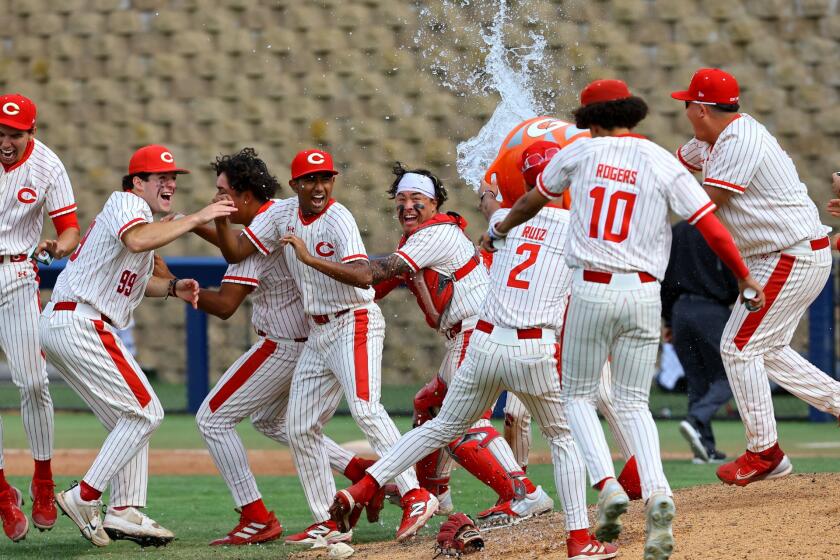Cuba to allow athletes to compete professionally abroad

- Share via
Don’t look for the next Yasiel Puig to begin paying taxes to the Cuban government just yet. But it could happen someday now that the island’s communist leaders have agreed to allow athletes to sign contracts and compete in foreign countries.
Although the move was being hailed in some circles Friday as a huge shift in policy, Cuba has been effectively selling many of its older athletes to foreign leagues in baseball and volleyball for more than a decade, mainly as a way for the cash-strapped country to make money.
Under those agreements, athletes such as baseball player Omar Linares were allowed to play in Japan or Italy at the end of their careers with the clubs paying the Cuban government directly for their services. Another player, outfielder Alfredo Despaigne, spent part of this summer playing in Campeche of the Mexican league.
However the law does not change U.S. policy toward Cuba, which bans nearly all transactions with the Cuban government. That would make it highly unlikely any Cuban athletes would wind up competing in the U.S. under such an arrangement.
“A change in Cuban law does not affect our licensing procedure,” John Sullivan, spokesman for the Treasury Department’s Office of Foreign Assets Control, told the Associated Press.
Still the new law is still a big step forward for Cuba, which outlawed professional sports in 1961, two years after the Fidel Castro-led revolution.
According to the Communist Party newspaper Gramna, athletes will be allowed to play abroad as long as they fulfill their athletic commitments at home, such as playing with the Cuban national team in international competitions like the Olympic Games and the Pan American Games. For baseball players, that could also mean participation in the island’s main domestic league, which runs from November to April.
“It will be taken into account that they are in Cuba for the fundamental competitions of the year,” Gramna said.
The newspaper said the new measures were approved at a recent session of the Council of Ministers, which is head by President Raul Castro. The government also approved pay raises and bonuses for athletes who, in the case of baseball players, were earning about $17 a month.
Now baseball players in the top Cuban league will make $41 a month, about $22 a month less than Olympic medalists. Players who appear in 70% of the Cuban league’s 90 regular-season games will earn an extra $208 while league leaders in various categories will get an extra $41. Winning a championship will mean $2,700 for the players to divide among themselves.
On top of that, Granma said, leading athletes will get a monthly award for “international achievements” ranging from $26 for being on a national team to $104 for an Olympic gold medal.
If the goal of the new law was to stem the flow of defections to the U.S., the Cuban government will likely have to revise those numbers upward. Way upward.
After Puig defected last year, the Dodgers gave him $42 million over seven years.
ALSO:
Former college athletes reach settlement in video game suit
Watch Mariano Rivera’s emotional farewell to Yankee Stadium
Vikings give Matt Cassel the start over an injured Christian Ponder
More to Read
Go beyond the scoreboard
Get the latest on L.A.'s teams in the daily Sports Report newsletter.
You may occasionally receive promotional content from the Los Angeles Times.











